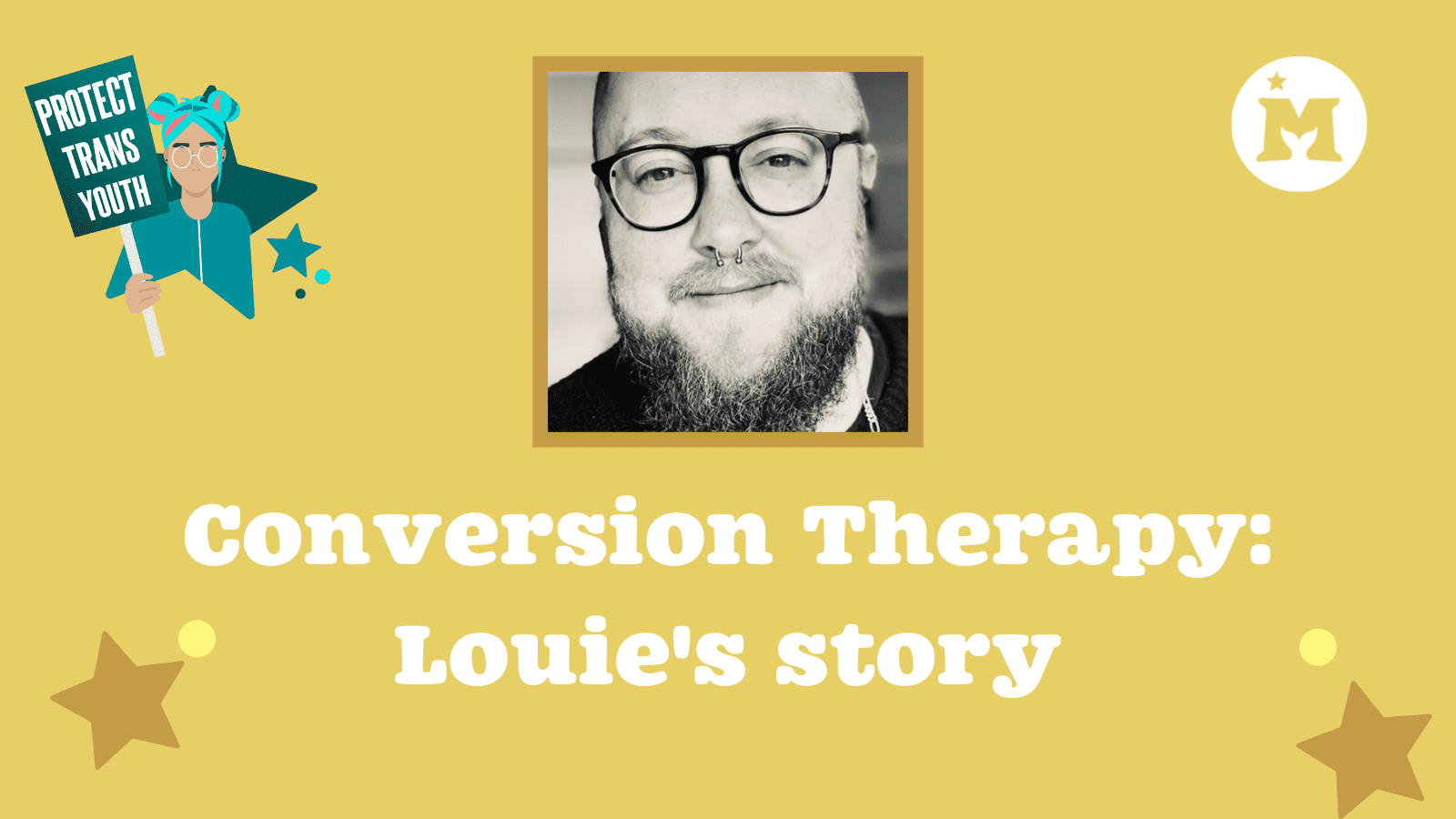
Content warning: This article contains reference to abuse. Please visit mermaidsuk.org.uk/ct-support if you need to talk to someone.
I was 19 at the time of my conversion therapy experience. I was having a same-sex relationship with another member of my church congregation, and we had been found out by a senior leader in the church. My whole world was thrown upside down.
Before that day, I was a respected member of the church. I had a job as the church youth worker, I was a respected Sunday worship leader, and was living with the Vicar’s family. Young people in the church looked up to me and older people looked at me and saw potential. I was considered a “rising star” of our community. All until the day my dark secret was uncovered.
“I begged God to save me from my queer thoughts”
The discovery at the time of my same-sex relationship was terrifying. I was facing losing almost everyone and everything in my life. I didn’t realise, but my involvement in this modern evangelical Christian church between the ages of 17-20 led me to be somewhat isolated from my family. My housing, employment and education were all tied to the church.
I also knew I was trans at this point, but like many young trans people, I didn’t have the vocabulary to describe what I was feeling. I didn’t dare voice out loud that I was also battling with confusion over my gender for fear of further ostracisation.
It was due to sheer fear of losing the community I was part of that for months, I agreed to attend therapy sessions. I experienced exorcisms and went on retreats to “healing” camps with other LGBTQ+ Christians, arranged by the church, and spent hours of my day in private prayers of repentance. Regularly, I begged God to save me from my queer thoughts and take away the feelings of gender dysphoria.
Desperately searching for answers, many people around me were quick to conclude that my sexuality resulted from “demons” I was exposed to due to the trauma of being adopted as a child.
Rebuilding my life
Eventually, after months of isolation and abuse and being no further forward in being “healed” of homosexuality, I left. I got a place through clearing at University and used my student loans to rent a new house. I cut ties almost overnight with everyone from the church, joined the LGBTQ+ student society and started rebuilding my life.
It has taken me over a decade to heal. Part of that has been recognising that what I went through was conversion therapy and allowing myself to accept that I was a victim.
No one used the words “conversion therapy” at the time and the people in my church weren’t evil masterminds. They were my friends and my peers. What I experienced was something no young adult should have to endure. Still, at the time, I was led to believe the people around me were acting out of love. I trusted their actions.
Years later, I spoke to a police officer about my experience. It was made clear that I had no grounds for a report. This was because I was over 18 at the time, and technically I was a consenting adult with capacity.
“Subtle and insidious”
It is a myth that conversion therapy happens at the hands of organised criminals and huge faith organisations. More regularly, it happens in small communities where it is subtle and insidious. For conversion therapy to occur, most perpetrators deliberately blur the lines between consent and coercion, making victims believe what is happing to them is by their own free will.
The UK Government has been promising action on conversion therapy for years and is currently conducting a consultation on what changes to the law might look like.
But the consultation suggests that any proposed ban will include exemptions allowing for conversion therapy to legally occur when recipients are over 18 and can “consent”. This means that instances like mine, where I was coerced to agree to my conversion therapy, would remain legal, and perpetrators would be protected by law.
Conversion therapy, at its core, sends a message that LGBTQ+ people are fundamentally “wrong”. It teaches that those who choose to live their lives authentically should feel shame and fear.
The Government’s consultation on a ban on conversion therapy, which is open until 4 February, is an opportunity for LGBTQ+ people to send a clear message that conversion therapy must be stopped in all its forms.
If you’ve been affected by the issues in this piece and would like to speak to someone, you can contact our support line or the dedicated conversion therapy support line run by experienced LGBTQIA+ staff. The support line is open to all LGBTQIA+ people in the UK who are victims of so-called “conversion therapy”, or who think they might be at risk. The service is run by LGBTQIA+ anti-abuse charity Galop, which works directly with thousands of LGBTQIA+ people who have experienced abuse and violence every year.
